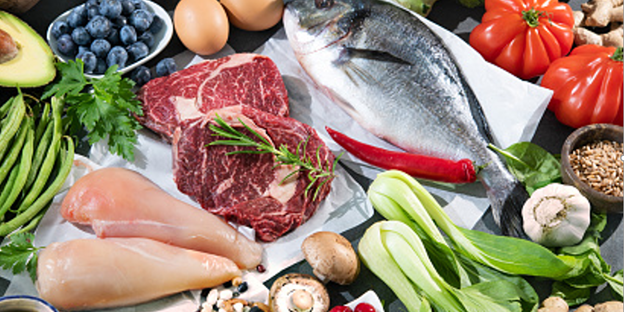
Remember we talked about our fascia being the “home” of inflammation, and henceforth the arena which will dictate our capacity to heal? Hippocrates said millennia ago “Let food be thy medicine, and medicine be thy food”? Unfortunately, modern Western medicine seems to have overlooked this basic tenet of human health, so we find ourselves living in a society that is overfed but in too many cases grossly undernourished!
The resolution of acute inflammation is initiated at the time we become inflamed, but only if we have sufficient Omega-3 (Ω3) essential fatty acids in our diet. Why essential? Because we cannot synthesise them in our own bodies, wholly relying instead on dietary sources. Would it surprise you to learn that of the ideal ratio of Ω3:Ω6 fatty acids in our diet of 1:5 to 1:7 but in the Standard Australian/American Diet (whichever way you look at it, it’s S.A.D!) it’s more in the region of 1:10 and in some cases 1:17! It seems little wonder therefore that many of us never actually resolve our acute inflammation….
Does this mean we’re more prone to chronic inflammation and therefore chronic pain? Generally, the extent and effects of chronic inflammation vary with the cause of the injury and can have a number of triggers but the real crux of the matter can be summed up as “the ability of the body to repair and overcome the damage”! We are required to CREATE a suitable environment within the body to facilitate repair! Yet again, epigenetics plays a massive role in this aspect and in many circumstances in autoimmune disease as well. As such, chronic inflammation can be viewed as a failure to heal via the mechanisms of the acute inflammatory process.
So where can we access our essential Ω3s? Oily fish from cold northern waters (salmon, mackerel, sardines, herring, black cod), fish oil, algae and DHA-rich eggs.
Consumption of concentrated Ω3 FAs found in fish oil supplements offer benefits associated with fish consumption without the exposure to harmful environmental toxins like mercury, polychlorinated biphenyls (PCB) and organochlorine (OC) that tend to accumulate in fish. Worth mentioning is that the over-consumption of fish oils (> 300mg) can be an issue for patients taking anti-coagulants or awaiting surgery as they may further inhibit platelet aggregation.
It’s also worth noting that it’s advisable to minimize intake of antibiotics and NSAIDs. Their use, and that of antacids could harm the gut microbiome (all the buzz these days!) causing inflammation in intestinal walls known as leaky gut syndrome. This in turn releases toxins and triggers chronic, body-wide inflammation.
Eat clean, live lean….







